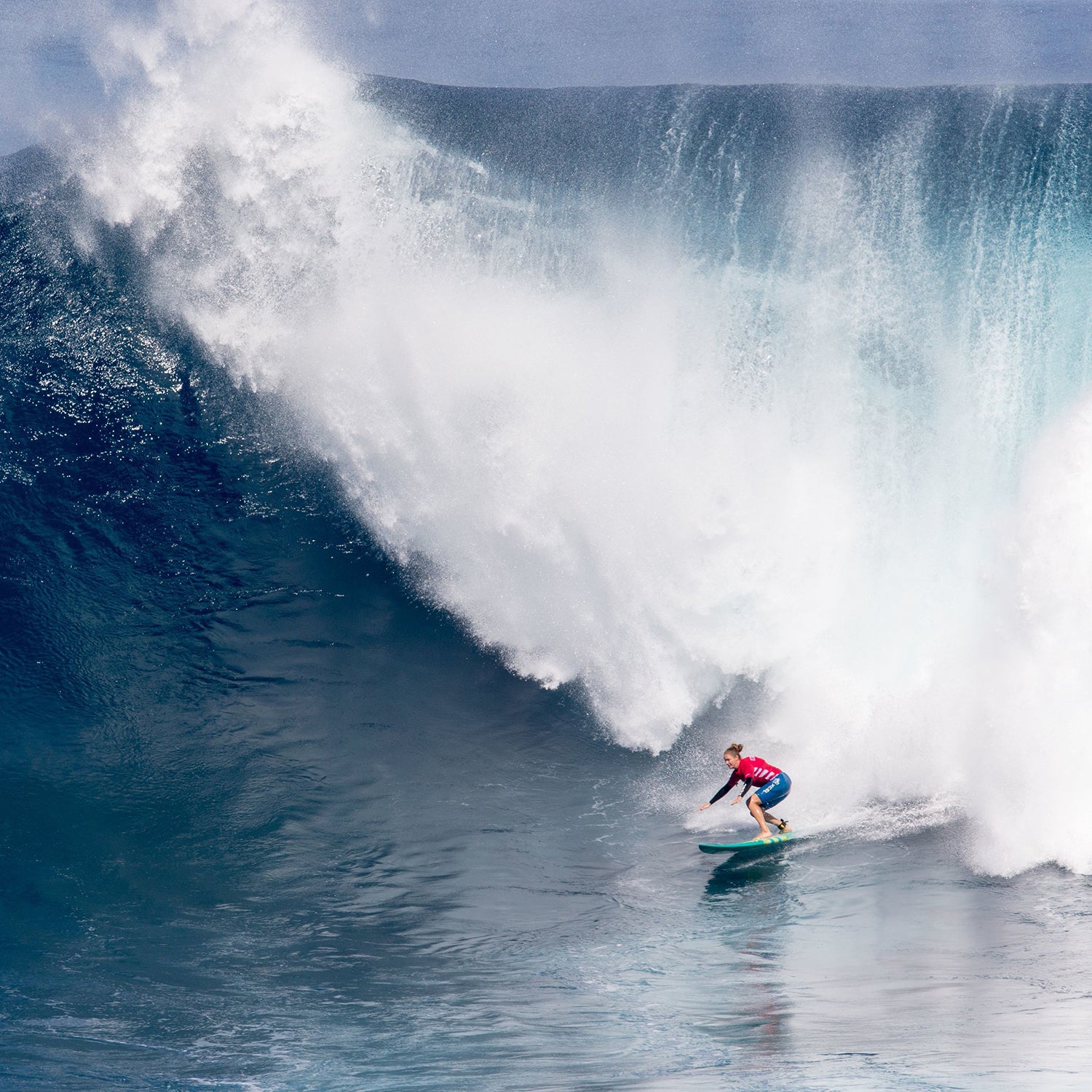“Girls do fine when it comes to housework, raising children, doing office work, doing the twist and even riding the ankle snappers at Malibu,” wrote big-wave surfing pioneer Buzzy Trent in a 1963 article in Surf Guide magazine. “But one thing I can’t stand is girls riding (or attempting to ride) big waves.”
He went on: “You see, girls are much more emotional than men and therefore have a greater tendency to panic. And panic can be extremely dangerous in big surf. …Girls are weaker than men and have a lesser chance for survival in giant wipeouts.”
Finally, he concluded by writing: “Girls are intended to be feminine, and big-wave riding is definitely masculine… Girls are better off and look more feminine riding average-sized waves.”
Sure, that sounds like classic 1960s sexism, but has much changed in the intervening 55 years?
According to two big-wave pros I spoke with—, a professional surfer from the Bay Area, and , a Maui local and big-wave world champion—the answer’s no. Both Valenti and Alms have been invited to surf in the , which if it goes off in the next month, will be the first time women have ever surfed in the event. They also co-founded the along with fellow big-wave surfers Keala Kennelly and Andrea Moller. Here’s what they had to say about Buzzy, sexism, and the future of their sport.
On Shitty Things They’ve Heard in the Lineup
Valenti: “While paddling out to a Northern California surf break, a guy yelled, ‘This is a man’s playground. I don’t want to see you unless I’m going out on a date with you, because you’re kind of cute.”
On Fighting for Their Place
Valenti: “As a woman, you have to constantly prove yourself, whereas a guy—even of lesser experience—will paddle out and no one will say anything. Now I get cheered on [by the guys], but it took me a while. Psychologically, it was hardest thing to deal with that hungry pack of wolves while I earned my place.”
Alms: “Men will look at women and be like, ‘Who does she think she is?’ A lot of the time they don’t say anything, but you can feel it. The male bravado, the ego.”
On Muscling Out to a Wave
Valenti: “It takes a tremendous amount of hard work to be out there—for anyone. But if you’re a woman, you have exponentially more work, mentally and physically. To catch waves, you have to be able to match the speed of the wave and most men have an easier time with this, with more muscle mass up top and a longer wingspan. For every man’s paddle-stroke, I have to do three.”
On the Lack of Women Role Models in Surfing
Valenti: “There’s a young, up-and-coming male big-wave surfer at Mavericks who has older male surfers basically fighting over him, wanting to his mentor. Most girls don’t have that sort of opportunity. For most women, without mentors, the questioning and looks by men is enough to keep them from trying. Women really have to be willing to blaze their own trail.”
On the Feminism of Big-Wave Surfing
Alms: “Yeah, big-wave surfing is dangerous and scary, but I don’t see why that makes it more masculine. Women birth people—that’s pretty much the gnarliest thing you can go through and no one’s calling that ���������ܱ����Ա�.”
Valenti: “I’m a female and I’m a surfer, therefore surfing is feminine. Men feel like we’re trying to take something away from them, but we’re not. We’re all in this together. Let’s celebrate men and �ɴdz����.”
On Fighting for Pay and Airtime Equality
Alms: “We’re at a time and place in our country, and in our world, and in this sport where we [women] are in a place of power, where we need to speak up.”
Valenti: “It’s exciting right now. Women are getting media exposure, and competitive opportunities, and the overarching conversation in our society of is focused on equality.”


